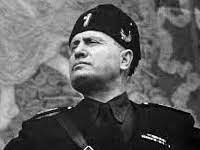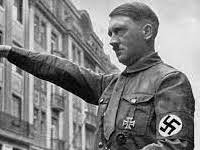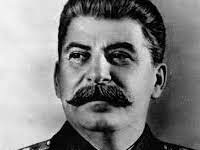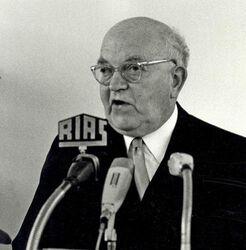
This series of lessons explain how in general authoritarian regimes come to power, consolidate power and use that power. You will find these lectures and associated reading the most challenging things you have done this year. This page atempts to explain how authoritarian states consolidate and maintain their power. More detail can be found in three case studies below:



Having got into power, what does an authoritarian regime do next? The next two sections of the syllabus address this question in overlapping ways. This first section deals with how the state reinforces, extends and maintains its newly acquired power.
The second section will deal with how and why this power is used to transform the country. It is important that from the beginning you appreciate how power and policy are interrelated. For example, as we saw in the earlier case of Lenin's Russia, an authoritarian regime may have an extensive system of police surveillance and prison camps (coercion), but it is still unlikely to stay in power for long if the policies it introduces are deeply unpopular or ineffective (importance of consent).
Coercion - Formal Social Control
a. Coercive Legal Methods - Important during consolidation
‘It has to look democratic, but we must have everything in our hands.’
Walter Ulbricht, later East-German Head of State, 1945.
New authoritarian laws
In a dictatorship there is no real separation of powers, no independent judiciary or Supreme Court which can strike down legislation as unconstitutional.
Laws might effectively be imposed by decree or a semi-martial law might be imposed, and they are an important example of formal control. The right to express political opinions, to enjoy freedom of religion and the right to privacy are all curtailed in authoritarian regimes. But it is the absence of the rule of law that is the most significant characteristic of an authoritarian state. The individual might be arrested and held for an indefinite period of time, without access to a lawyer and without having enjoyed a fair trial. In prison, they might be denied basic rights, and subject to physical and psychological abuse and torture. In this way, vocal critics, those capable of influencing others, are silenced and potential opposition is stifled. In addition, new authoritarian laws might contravene liberal expectations that new laws cannot be imposed retroactively, or that laws cannot be motivated by political or ideological biases
New authoritarian institutions - the dual state
The process of consolidation varies from state to state, but in general terms, authoritarian consolidation means gradually replacing of the old ‘normative’ state with the new authoritarian ‘prerogative’ state. The new institutions of the prerogative state are defined by their extra-legal status, the fact that would lack any authority in a normative state.
Ernst Fraenkel’s - Normative and prerogative state - The dual state
Ernst Fraenkel (1898 - 1975) was a German political scientist and a member of the socialist resistance, who fled Nazi Germany in 1938. When reflecting on the consolidation of power in Nazi Germany, he distinguished between the ‘normative’ state that the Nazis inherited - ministries, civil service, local authorities and laws and conventions - and the ‘prerogative state’, an essentially extra-legal system that derived its legitimation entirely from the supra-legal authority or ‘will’ of Hitler and his acolytes.
When Hitler failed to get the convictions he wanted at the Reichstag Fire trial, he ordered the creation of People’s Courts which had jurisdiction over a wide range of ‘political offences’ and a tendency to punish more severely. The SA in Nazi Germany were essential to the consolidation of Hitler’s regime, but they had no legal authority to act as they did.
New authoritarian people - the power of patronage
As well changing the laws and the institutions that exercise power, the final aspect of the legal methods employed by authoritarian states is the ability to control the type of people who will exercise power in the state. This gradual process is true of both the normative and prerogative state and is one of the defining characteristics of all authoritarian regimes. Controlling who can exercise authority allows the state to reward loyalty and punish dissent. Individuals are not appointed or promoted because of their ability alone, but because of their ideological suitability. Individual appointments require loyalty to the state; judges, police commissioners and civil servants will on a daily basis reinforce the political and ideological prejudices of the regime. Once these suitable individuals are appointed, they have a profoundly vested interest in supporting the regime. Patronage, therefore, becomes a means of not only consolidating authoritarian rule, it also becomes essential to its long-term maintenance. Importantly, the more power the state exercises, the bigger the state bureacracy becomes. The bigger the bureaucracy, the more significant the power of patronage becomes. It is why communist states - which extend their control over all aspects of economic and social life - are more totalitarian than capitalist authoritarian states which allow the continuation of the capitalist economy.
b. Coercive Force - Important during consolidation and maintenance
“The best political weapon is the weapon of terror. Cruelty commands respect. Men may hate us. But we don’t ask for their love; only for their fear.” - Heinrich Himmler
Secret police
The term secret police (or political police) refers to police agencies that are involved in covert actions against political enemies of the state. The Gestapo, KGB and Stasi are names that have attained an emblematic notoriety of authoritarianism and also are the most obvious examples of prerogative state power. The secret police is literally a law unto itself. Real or imagined opponents can be abducted (preventative arrest), indefinitely detained, tortured and murdered without any real ‘crimes’ having been committed and without any due legal process being followed.